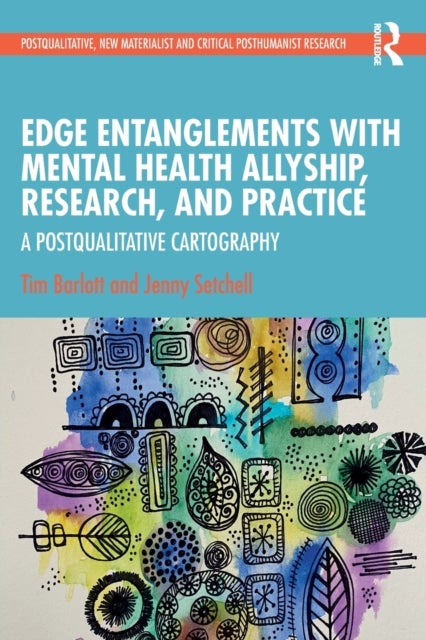
Edge Entanglements with Mental Health Allyship, Research, and Practice av Tim Barlott, Jenny Setchell
489,-
<P><EM>Edge Entanglements</EM> traverses the borderlands of the community "mental health" sector by "plugging in" to concepts offered by Gilles Deleuze and Felix Guattari along with work from Mad Studies, postcolonial, and feminist scholars. Barlott and Setchell demonstrate what postqualitative inquiry can do, surfacing the transformative potential of freely-given relationships between psychiatrised people and allies in the community. </P><P>Thinking with theory, the authors map the composition and generative processes of freely-given, ally relationships. <I>Edge Entanglements</I> surfaces how such relationships can unsettle constraints of the mental health sector and produce creative possibilities for psychiatrised people. Affectionately creating harmonies between theory and empirical "data," the authors sketch ally relationships in ways that move. Allyship is enacted through micropolitical processes of becoming-complicit: ongoing movement towards taking on the struggle of another as








